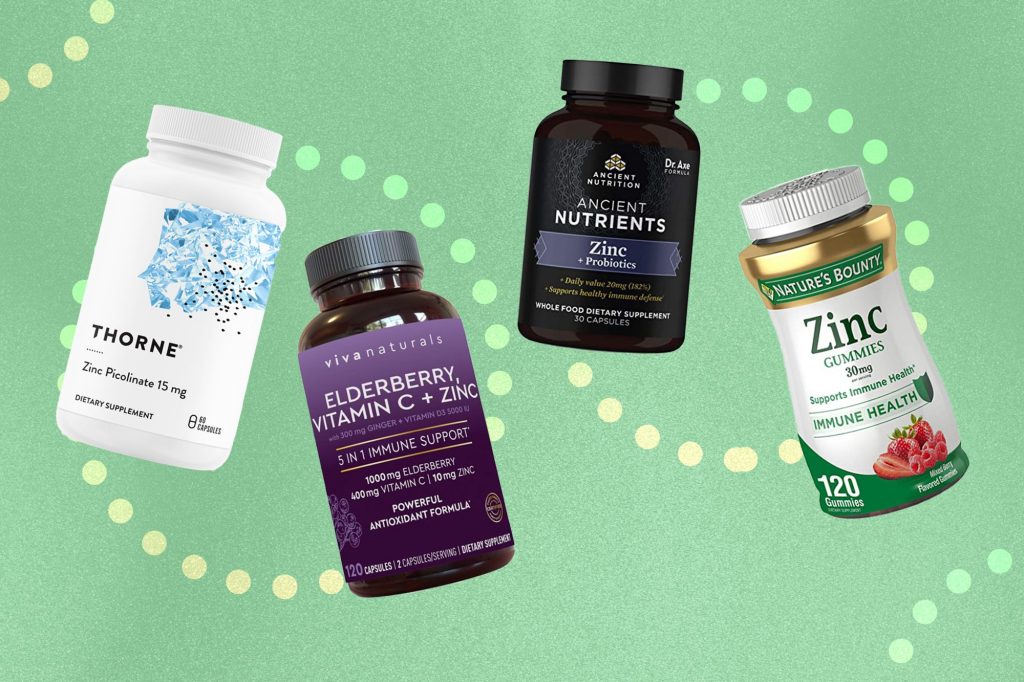Zinc is a nutritionally essential mineral required for catalytic, structural, and regulatory functions inside the body. Zinc plays a critical role in many aspects of metabolism, growth and development, immunity, neurotransmission, vision, reproduction, and digestive health. Though zinc is widely available in most high protein foods like red meat and poultry, as well as beans, nuts, certain types of seafood (such as crab and lobster), whole grains, fortified breakfast cereals, and dairy, many health conditions can impede the absorption of zinc. Indeed, the World Health Organization (WHO) reports that the global prevalence of zinc deficiency is roughly 31 percent.
Zinc supplements are widely available in a range of forms, formats, and potencies and though they are by and large well-tolerated, they can cause adverse effects such as nausea, vomiting, diarrhea, and stomach upset in certain individuals. The best way to mitigate these is to always take zinc along with a meal or a snack. Below are some tips to get the most benefits from your zinc supplement.
Zinc Lozenges
Zinc lozenges have long been used in the treatment of the common cold to reduce the duration and severity of cold symptoms and are the ideal form for those looking to bolster their immunity. According to an article published in The Cochrane Database of Systematic Reviews in 2011, using zinc lozenges for at least 5 months can prime the immune system and make you less likely to catch colds. Taking zinc lozenges as soon as you begin to experience cold symptoms can also shorten the duration of your cold by about a day and make your symptoms less severe.
Zinc Liquid
Zinc in liquid form is ideal for those who have a hard time swallowing tablets and capsules, such as children and the elderly, as well as those with dentures, partials, palate expanders, or retainers. Liquid zinc supplements also offer improved absorption in the digestive tract. Certain studies have shown that liquid supplements tend to have a higher peak concentration and a shorter time until they reach peak concentration. This is a major benefit of liquid zinc, which tends to have a higher concentration than pills, and higher concentration = higher bioavailability.
Zinc Bisglycinate
When it comes to supplements, chelated forms of zinc – i.e. those that use a chelating agent to help the body absorb the mineral more easily, offer enhanced bioavailability and absorption. Zinc bisglycinate is a chelated form of zinc comprised of one zinc molecule bound to two (bis = two) molecules of the amino acid glycine and is considered the preferred form of zinc. Indeed, not only is zinc bisglycinate highly absorbable, but it is also milder on the stomach than most other forms of zinc because it is, in essence, predigested and stable in the acidic pH of the stomach.
Zinc Citrate
The body can only absorb 20 – 40% of the zinc present in food and zinc is also best absorbed when taken with a meal that contains protein. Zinc citrate contains the zinc salt form of citric acid and is considered a highly absorbable form of zinc. In fact, according to research published online in The Journal of Nutrition, zinc citrate offers superior absorption to zinc oxide and is on par with the absorption of zinc gluconate, the benchmark.
Disclaimer: The information in this article is intended for educational and informational purposes only and should not be considered as a substitute for medical advice. Please consult your practitioner prior to taking herbs or nutritional supplements.
